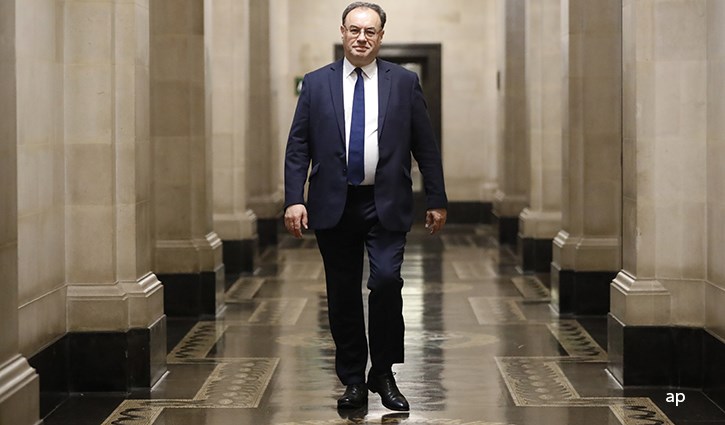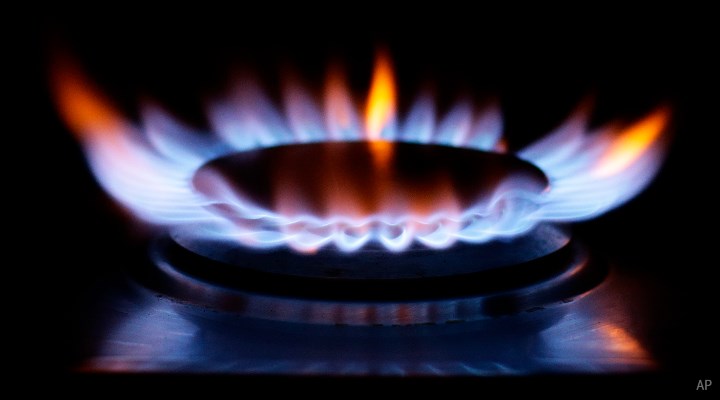
The Bank of England (BoE) has raised interest rates for the second time in an attempt to control soaring UK inflation.
Interest rates were raised from 0.25% to 0.50% in Thursday’s meeting, following a December hike from 0.10% to 0.25%. This latest move effectively ends the “emergency” monetary support launched during the pandemic in 2020, when interest rates were cut to a record low of 0.1%. Quantitative easing is also being unwound, the BoE confirmed. While December’s rate rise was not expected by markets, today's had been priced in already.
The US Federal Reserve has also signalled rate rises are coming this year, which has unnerved risk assets like equities. But the BoE is the first of the major central banks to pull the trigger. Stock market reaction was muted, with the FTSE 100 down just 23 points at lunchtime to 7,559, while gilt yields for bonds from two to 30 years’ maturity increased.
Hawks Gathering
According to the BoE's monetary policy committee minutes, members voted 5-4 in favour of the increase. The four members of the MPC voted for an even bigger rate rise, of 0.50% to 0.75%, so it will be interesting to see how that split manifests itself in the next meeting on March 17. Financial markets, meanwhile, forecast interest rates of 1.5% by 2023.
What may alarm inflation watchers is that the BoE is now itself forecasting CPI inflation to peak at 7.25% in April. In November last year it expected that number to hit 5.25% before falling back again.
Global energy prices are one reason for the Bank’s cautious outlook. Is there any respite ahead for energy customers? Today’s news of a 50% rise in the energy price cap in April suggests that this is unlikely soon, although the government is planning to soften the blow.
Energy market prices, or futures, imply that the price of gas and electricity will tail off after reaching a peak, but the BoE is considering an alternative: that prices plateau at high levels.
“Wholesale energy prices are assumed to follow their respective futures curves for the first six months of the projections and remain constant beyond that, in contrast to futures curves, which are downward sloping over coming year," the BoE said in a statement.
Russia’s next move in Ukraine is expected to be a swing factor too. Falling demand in the European spring and summer could ease some price pressures until next winter.
Too Fast?
Like energy prices, supply chain problems are beyond the BoE's immediate control. While the market anticipates further rate hikes, there’s the danger that too many hikes, and too quickly, could kill off consumer spending and the economy, which is still in recovery mode.
BlackRock Investment Institute’s UK chief investment strategist Vivek Paul sums up this dilemma: “The unique restart of economic activity and the impact of Brexit are causing bottlenecks in key sectors, driving up prices. There is not much that monetary policy can do about this – and over-tightening now could destroy demand so much that the BoE is forced to reverse course.
“This is what markets already have priced in - reflecting confusion around the intentions of the Monetary Policy Committee (MPC). The MPC will need to communicate clearly what its motivation is, in our view, to avoid over-tightening financial conditions and hurting the real economy.”
On the flipside, could interest rates go up more than the market is pricing in? “The truth is that nobody, including the BoE, knows,” says Steven Bell, BMO GAM’s chief economist.
“But even if they rise to 1.5%, a year or so from now, as the market currently expects, they would still be below the 2% inflation target and therefore remain negative in real terms. If the BoE want to put downward pressure on inflation, rates will have to rise considerably further.”
Why does the Bank of England raise interest rates? Well, it has an inflation target of 2% but the Consumer Price Index rose to 5.4% in December on an annual basis, up from 5.1% in the month before. Interest rates are traditionally used as a tool by central banks to restrain inflation by reducing the money supply, which makes borrowing more expensive for businesses and individuals.





























